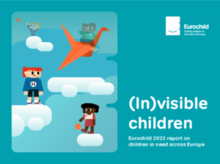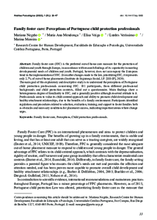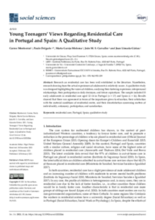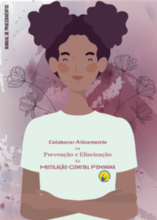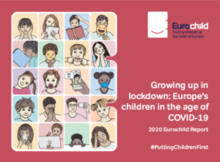Displaying 1 - 10 of 48
This study examined the long-term use of the Standard Triple P parenting program in Portugal’s child protection system, five years after 16 practitioners were accredited. Using a SWOT analysis and the Integrated Sustainability Framework, the study identified key strengths, weaknesses, opportunities, and threats affecting program sustainability, highlighting the need for deliberate planning to ensure evidence-based parenting programs are maintained over time and effectively reach families in need.
Foster care is the preferred out-of-home placement for children at risk. However, the number of children in child protection systems exceeds the availability of foster families, highlighting the need for recruitment campaigns. Despite the growing development of such campaigns, their results have not been evaluated. This study aimed to design and experimentally evaluate messages to increase awareness, willingness, and intention to foster in Portugal.
This report highlights the recommendations and priorities that EU decision-makers and national governments can do to support the most vulnerable children and prevent widening inequalities.
This volume covers a broad spectrum of current research findings concerning the participation of young people in foster families and residential living groups in Australia, Canada, Germany, Ireland, Italy, Portugal, Norway, Sweden, and Switzerland as well as cross-nationals perspective on children and young people’s participation in foster and residential care placements in Great Britain and France.
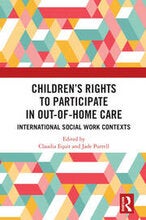
The main goal of this exploratory and descriptive study is to understand the perceptions of Portuguese child protection professionals concerning Family foster care. 101 participants, from different professional backgrounds and child protection contexts, filled out a questionnaire. Main findings show a heterogeneous degree of familiarity to FFC, and a generally positive although reserved attitude to it.
The objective of the present study was to characterize unaccompanied minors in Portugal and understand the processes of transition into the age of majority, using a mixed-methods approach.
A qualitative study was designed highlighting the voices of children, analysing their fostering experience, interpersonal relationships, their participation in daily decisions, and future aspirations.
This study builds upon and enhances existing knowledge by exploring the moderating role of social support from educators in residential care and the association between perceived rights and psychological difficulties.
This report reflects on the effects of the coronavirus pandemic on children. It compiles information gathered from 25 countries across Europe, and provides recommendations for improving public policies in the short and long-term to support better outcomes for children and families, including children in alternative care or at risk of separation.


